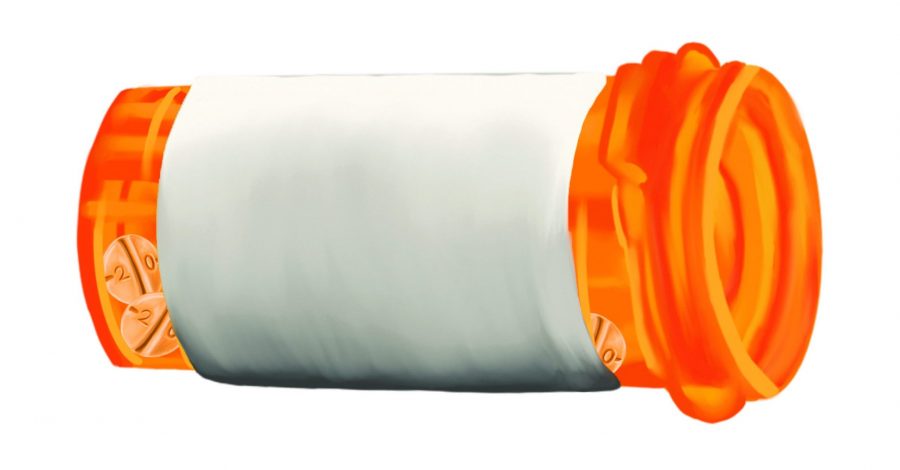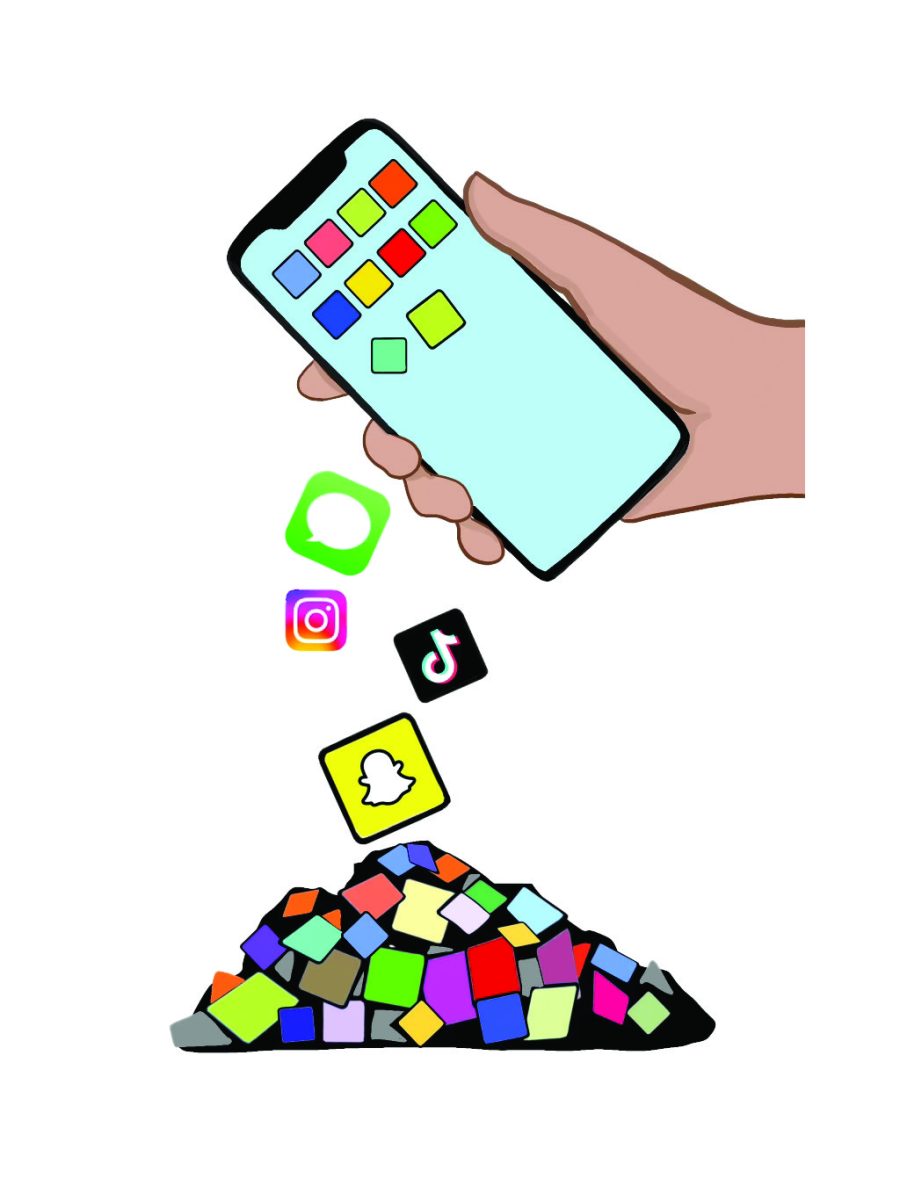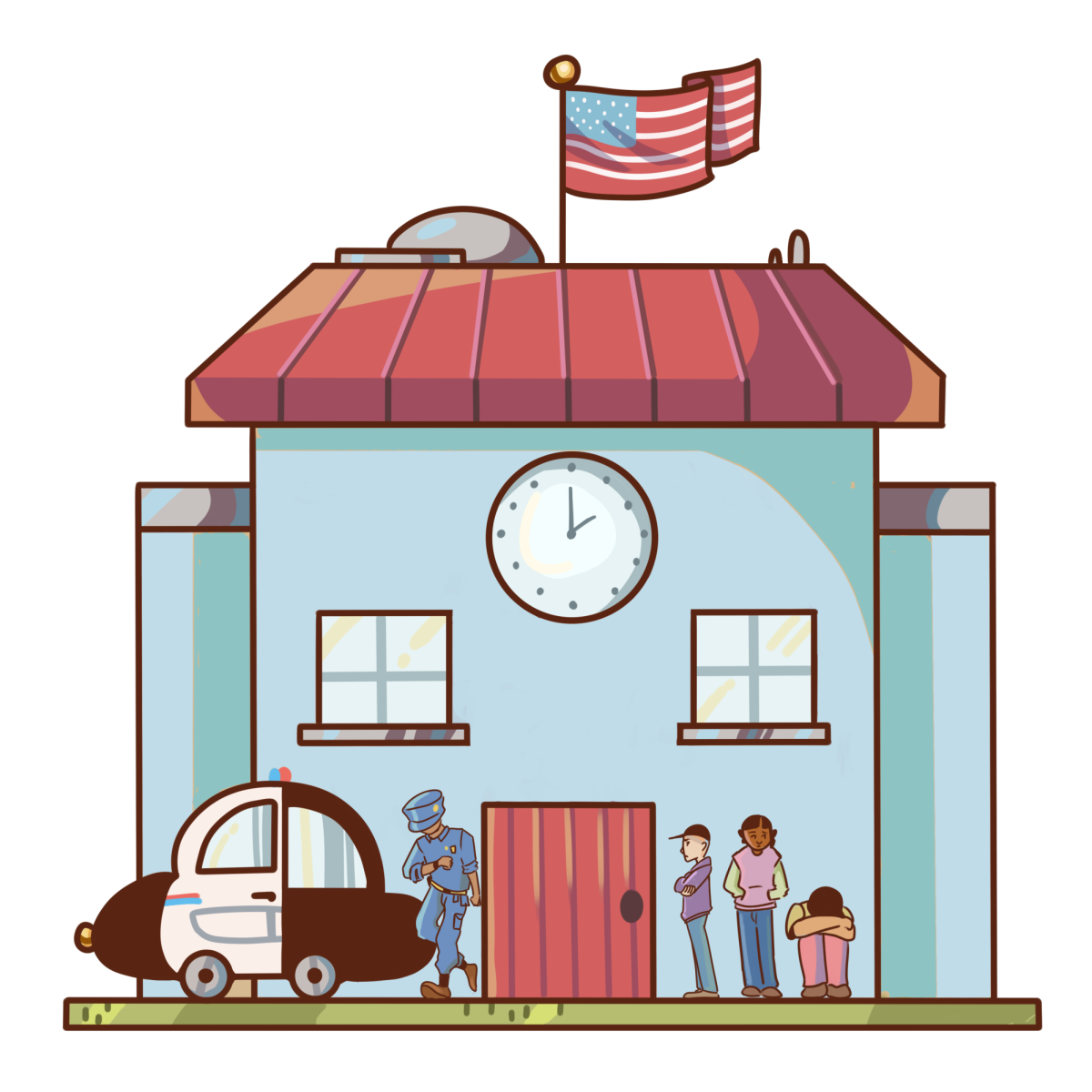Clarification, March 5th:
According to a Chronicle poll of 155 respondents, more than 4 percent of students reported using a study drug. A second poll with 154 respondents, showed that more than 52 percent of students reported knowing someone who abused a study drug.
According to a study published by New York University in 2017, over 6 percent of high school seniors reported nonmedical Adderall use out of 24,000 participants nationwide.
The school learning specialist declined to comment.
On a particularly overwhelming school night last year, Jill* turned to her best friend and asked if she could take some of his prescribed Adderall. He handed her a pill, and after only the briefest moment of hesitation, she swallowed—the effects hit her just moments later.
“I don’t even know how to describe it,” Jill said. “It just feels like you are really, really focused [and] have a lot of energy. They’re [combination] amphetamines.”
According to a Chronicle poll of 155 respondents, 4.5 percent of students have reported abusing a study drug out of 155 respondents, but 52.6 percent of students reported knowing someone who abused a study drug out of 154 respondents. A 2017 study by New York University showed that 6.9 percent of high school seniors reported nonmedical Adderall use.
Jill said Adderall allows her to study for longer periods of time without getting distracted. She said that from what she has observed, the students who regularly abuse the medication are more successful in school.
“That’s the thing about Adderall, it’s not you doing the work anymore,” Jill said. “You are just so focused on [the work] it just does it in a way if that makes any sense.”
The willingness of some students to resort to Adderall use when under academic pressure is a severe danger to their health. The study drug can cause extensive damage to the heart and cardiovascular system if used for a prolonged period of time. This damage can result in a stroke, heart attack or seizure, according to Healthline.
Edmund*, who said he has abused Adderall in the past, thinks that the nature of the school’s high-intensity environment can make the drug a necessary evil.
“I think for school some kids are just up to two in the morning every night,” Edmund said. “It’s not natural to do that so they do need an edge in a way, which makes sense.”
Jill said she takes the medication sporadically in an effort to avoid developing an addiction. She points to the drug’s addictive quality as the one reason she would never recommend the drug to her peers.
“I don’t let myself take it enough to the point where I do it three days in a row because then you get withdrawals and it sucks,” Jill said.
According to Addiction Center, over 116,000 people were admitted to rehab for an addiction to amphetamines like Adderall in 2012 alone.
Dylan Field ’21, who has noticed an increases in usage among his peers, said he believes that Adderall abuse at school is a huge issue. He said that he thinks abusing the drug will result in addiction and an inability to do work without the drug.
“Students, because of [Adderall], have the ability to work and try less, knowing they can fall back onto Adderall if they lose focus,” Field said. “Thus, by putting in less effort, they become more dependent on Adderall which then allows them to use even less effort, which increases the vicious cycle of Adderall dependency.”
Edmund agrees that students should not take the medication nightly due to the risk of addiction. However, he said he is adamant that taking the drug occasionally can make sense.
“I mean it’s kind of crazy if people are doing it like every night,” Edmund said. “But, once in a while, I mean school is crazy. [Taking] it makes sense.”
From what she has seen at school, Jill said that most people who abuse the drug are using it to cope with their heavy workloads.
“Everyone has so much stuff to do [inside and] outside of school,” Jill said. “It’s crazy. Most of them are looking to actually [use it to] do their work which is one of the saddest things about it. They are using drugs to actually get by in high school, and that sucks.”
Jill said she thinks students are primarily motivated to try medication such as Adderall or Ritalin because they are both overwhelmed and desperate to do better in school.
“I just think that the people at this school are so depressed that they turn to [drugs] as an option,” Jill said. “I know about two people that are addicted to Ritalin that don’t have a prescription. The fact that [we] even have access [to these drugs] is what is kind of messed up.”
Field said he believes that Adderall abuse should never be condoned.
“Unless used in cases where there is a legitimate medical concern, Adderall abuse is a terrible issue in academics,” Field said.
Although Edmund acknowledges that the school says students can come to them with addiction help, he thinks most people go to outside support if they ever do get help. He said that he believes the school would prioritize their image over the students’ wellbeing.
“The school [has] a big name,” Edmund said. “[They] do not want to associate themselves with that. I think people know better than to go to the school with that kind of stuff.”
Head of School Laura Ross said she believes that Adderall abuse is no more prevalent at the Upper School school than it is at any other high-achieving high school.
“It’s been an issue for many years at high schools all over the country,” Ross said. “If we are in line with national statistics, then it’s likely that we might have students abusing these prescription medications.”
Although the school makes efforts to monitor students’ mental health, Ross said she believes that the school is limited in its ability to prevent such abuses.
“There aren’t many measures the school can take to stop students from sharing their medications with others to whom they are not prescribed,” Ross said. “However, we do monitor student health and wellness (physical and mental) every week and are on the lookout for signs of abuse.”
*Names have been changed



































